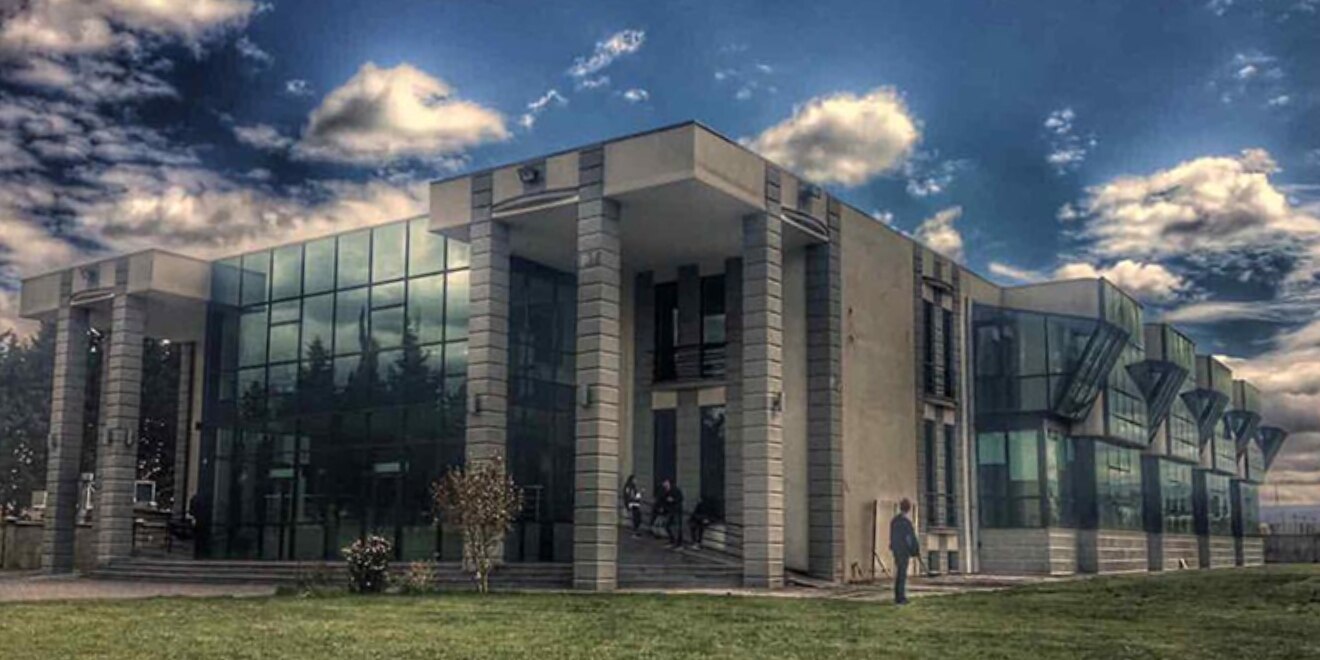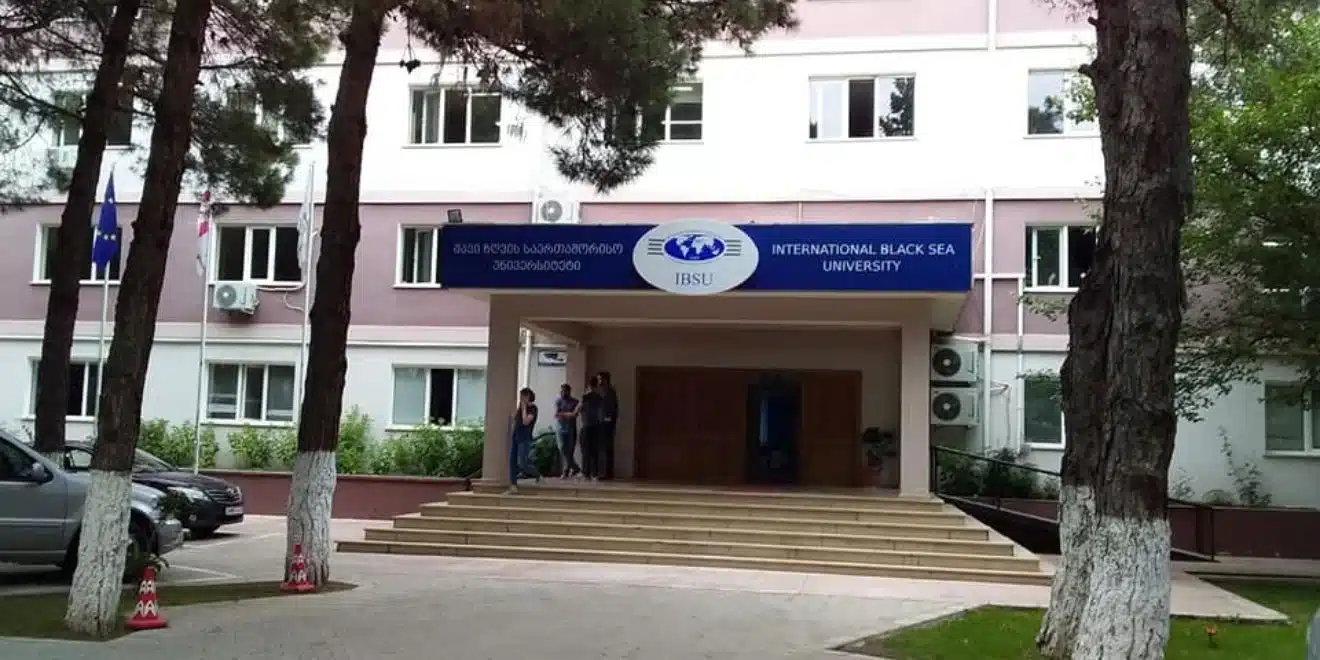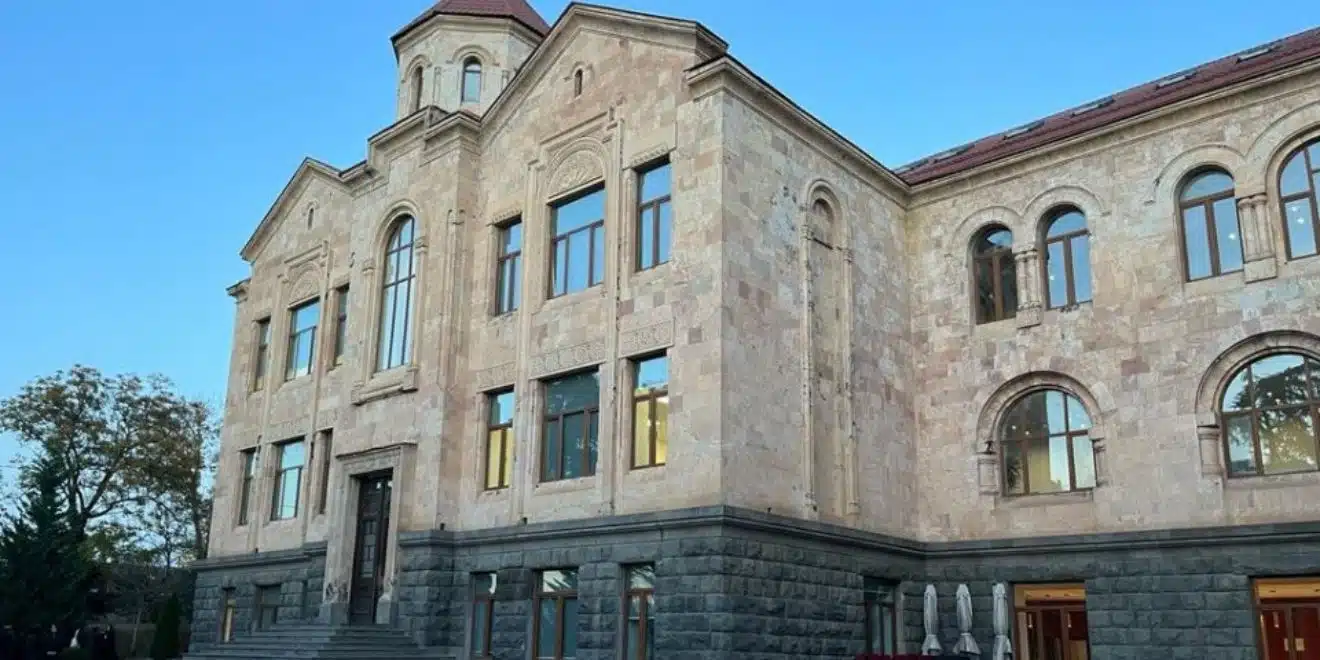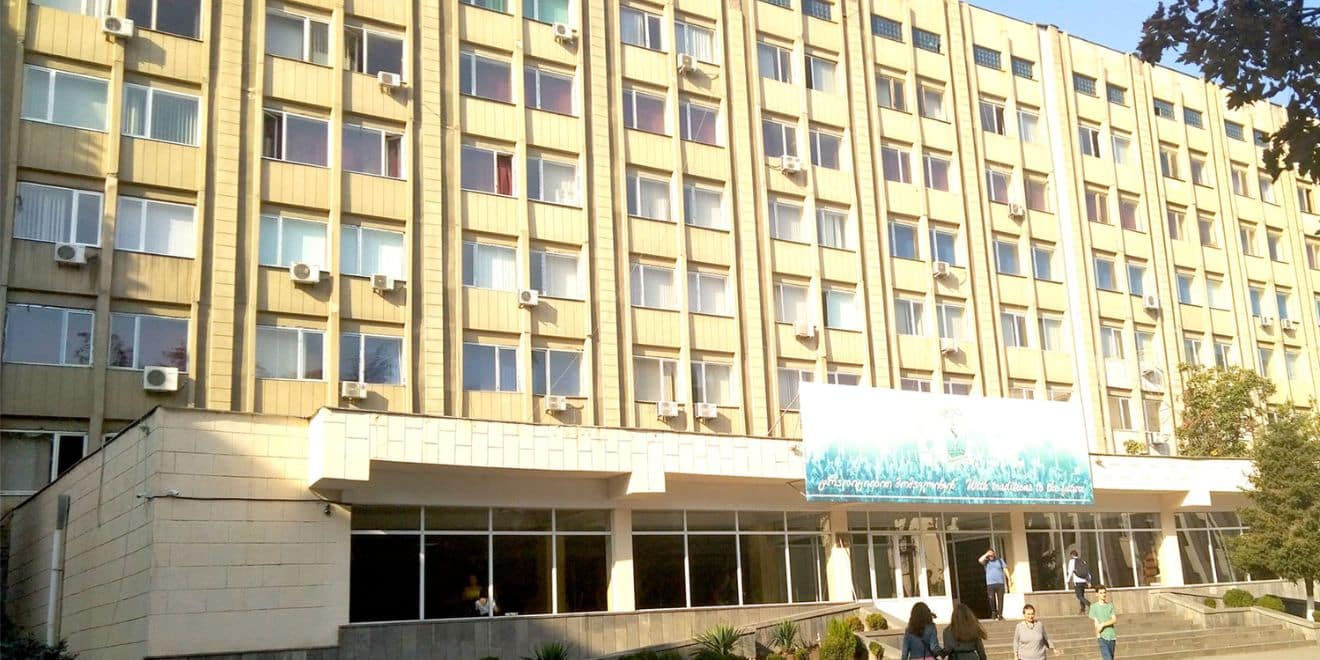
Grigol Robakidze University
Grigol Robakidze University, founded in 1992 in Tbilisi, Georgia, is renowned for its expertise in medical fields such as Medicine and Dentistry. Additionally, it offers a diverse range of courses encompassing social sciences, English, and German languages.
The university’s name was changed to honor Grigol Robakidze, a prominent Georgian poet and thinker, highlighting its rich heritage. As one of the earliest private educational institutions in Georgia, it upholds high standards in academic excellence.
The MD Educational Program at Grigol Robakidze University is designed to equip medical professionals with a comprehensive set of skills and knowledge aligned with the World Federation of Medical Education (WFME) standards and the competencies outlined by the Tuning Project.
The MD Program at Grigol Robakidze University spans six years and comprises 360 credits. Each academic year, which includes two semesters (fall and spring, each 19 weeks long), amounts to 30 credits per semester based on the European Credit System. One credit equals 25 working hours, split evenly between contact hours and independent student work.
Students have the option to complete the program in five years by accumulating 75 credits per year (over four years) instead of the standard 60 credits per year. The academic year consists of 38 working weeks, with breaks between semesters.
The MD Program seamlessly integrates basic science and clinical disciplines, following horizontal, vertical, and spiral principles. It comprises two key stages: the Initial Medical Stage and the Clinical Medical Stage. Each stage progresses through stages, cycles, and blocks, with each block building upon the previous one and introducing more advanced learning objectives.
The Initial Medical Stage, lasting one semester (the first semester), combines major biomedical sciences.
Grigol Robakidze University
During the Initial Stage, which spans one semester, students delve into the Core Principles of Biomedical Sciences. This phase aims to introduce fundamental principles and related vocabulary crucial for understanding basic sciences. It lays the groundwork for comprehending human organ systems in the subsequent four semesters.
Horizontal and vertical integration occurs through the coordination of basic clinical sciences, including Health Promotion, Scientific Research, and Professional Latin. Here, students gain insights into health promotion basics, research methodology encompassing search techniques, critical analysis, literature review, research planning, data collection, statistical analysis, result publication, and the practical use of Latin terms in professional contexts.
Grigol Robakidze University
The Clinical Medical Stage at Grigol Robakidze University in Tbilisi, Georgia, spans 11 semesters (330 credits) and is comprehensively structured. It includes Integrated Blocks I, II, III, IV (II, III, IV, V semesters), a Transition Block (VI semester), and Clinical Rotation Cycles I to VI (VII, VIII, IX, X, XI, XII semesters).
Integrated Blocks (II, III, IV, and V semesters) focus on organ system modules, facilitating the combined teaching of fundamental molecular, cellular, and organ system processes alongside disease processes. This approach contextualizes sophisticated scientific information within clinical scenarios, enriching students’ learning experiences.
Each module commences with a concise overview of micro and macro structures, progressing through Human Anatomy, Physiology, Histology, Cytology, Embryology, and Biochemistry of the specific organ system. Horizontal and vertical integration is achieved through coordinated and integrated basic and clinical sciences courses.
The Integrated Organ Systems courses at Grigol Robakidze University are designed to align with Patient Care principles, clinical and communication skills, core medical values, Pathology and Immunology basics, Microbiology, Virology, Parasitology, and research methods. They also include teaching on Health Care Management, Medical Psychology, Preventive Medicine, and Pharmacology fundamentals, organized into 5 modules for organ system learning.
These courses employ various learning methodologies such as lectures, group work, discussions, demonstrations, and self-study, along with Problem-Based Learning (PBL) sessions.
To enhance practical medical skills and ensure thorough understanding of timely diagnosis and treatment in clinical cases, clinical skills teaching progresses in a stepwise manner across five academic courses totaling 14 credits.
Research skills training consists of three academic courses focusing on scientific research principles, with a total of 10 credits allocated, 7 for theoretical aspects and 3 for practical research work.
Grigol Robakidze University
The Transition Block in the Clinical Medicine Course at Grigol Robakidze University in Tbilisi, Georgia, bridges the study of pathological changes and disease symptoms with the practical understanding of modern diagnostic principles and methods. It covers general aspects of Evidence-Based Medicine, Physical Diagnosis, fundamental Systemic Pathology, Pharmacology, Radiology research methods and diagnostic techniques, and common surgical diseases.
The course aims to cultivate clinical reasoning skills in students, emphasizing the application of theoretical knowledge in practical scenarios, analysis of patient examination data, interpretation of research findings, and improvement of clinical decision-making. The Case-Based Teaching (CBCR) method ensures active student participation in the learning process.
Grigol Robakidze University
The design of Clinical Rotations courses is centered around organ systems’ diseases-oriented studies. It aims to build upon previously acquired competencies while simultaneously deepening knowledge, mastering skills, and developing values, all while setting higher-level complex objectives. Clinical Rotation Cycles allow students to apply their basic medical knowledge in clinical medicine, focusing on the treatment of diseases and syndromes according to the latest clinical guidelines and protocols established by evidence-based medicine. These courses involve students in clinical activities where they function as Auxiliary Medical Staff (Clerkship).
The clinical rotation cycles are labeled I, II, III, IV, V, and VI for the next 6 semesters, followed by VII, VIII, IX, X, XI, XII. Each semester includes education equivalent to 30 ECTS credits.
During these courses, students gain valuable clinical experience while working under supervision at an affiliated clinical institution.
Grigol Robakidze University
First – Georgia is an Associate Member of the EU.
Second – Georgian universities, among them Grigol Robakidze University joined the Bologna process in 2005.
Third – Grigol Robakidze University is the only university in Georgia that has the campus of European type. Its architectural conception differs from other university buildings existing in Georgia. What is its originality?
Fourth – the academic staff of the University, Georgian and foreign professors are well known not only in Georgia but also beyond its scope. Foreign professors systematically visit the University and conduct lectures.
Grigol Robakidze University
| GRIGOL ROBAKIDZE UNIVERSITY | 1st Year | 2nd Year | 3rd Year | 4th Year | 5th Year | 6th Year |
|---|---|---|---|---|---|---|
| Tuition Fees/Year in US Dollars | 5500 USD | 5500 USD | 5500 USD | 5500 USD | 5500 USD | 5500 USD |
| Total in Indian Rupees/Per Year | 4,40,000 INR | 4,40,000 INR | 4,40,000 INR | 4,40,000 INR | 4,40,000 INR | 4,40,000 INR |
Grigol Robakidze University
Grigol Robakidze University diploma and degree, compatibility of educational programmes, implementation of exchange and joint programmes with leading universities of Europe.
For foreign students it means that they can obtain education of European type – diploma and degree, paying much lower costs as tuition fee and leaving expenses in Georgia are much lower than in Europe, though quality is European.
It is proved by the accreditation of Grigol Robakidze University by the Government of Georgia, a number of international projects and awards that the university received namely for high quality education. We present the main achievements:
2001 – Grigol Robakidze University won the project of the European Union which envisaged starting of the complete reform of the educational system of Georgia and implementation of pilot programmes at our University (moving to three-level education, working out and implementing modular educational programmes, moving to ECTS credits, implementing quality assurance system). Due to everything this, the university appeared on the leading positions in comparison with other universities.
2005 – The University received the letters of gratitude from His Excellency the US President Mr. George Bush and the Secretary of States Ms. Condoleezza Rice for translating and publishing Ten Federalist Papers
2012 – The Rector of Grigol Robakidze University was named as the Rector of the Year.
2013 – The Publishing House “Sakheebi” named Grigol Robakidze University as a “Golden Partner”.
2013-2014 – Grigol Robakidze University was named as the winner in the nomination “Trust and Reputation”.
2015 – The Union of National Business Ratings named Grigol Robakidze University as a “Leader of the Field”.
2016 – The Media Holding “Tbiliselebi” named Grigol Robakidze University as the “University of the Year”.
2016 – Grigol Robakidze University became the affiliate of Harvard Business School what enables our University to use their programmes, text-books and other resources.


